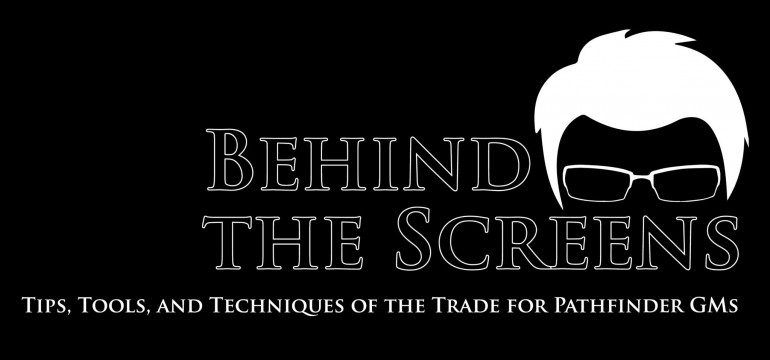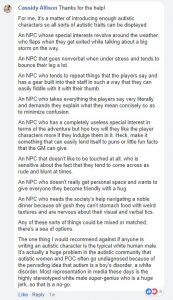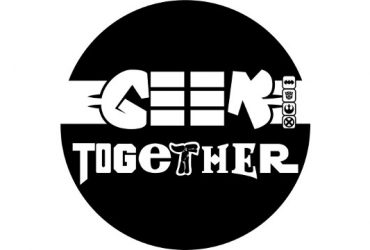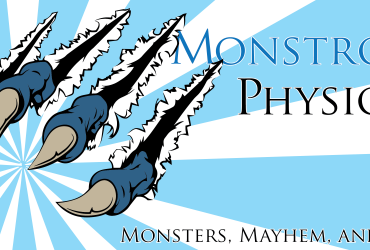Recently, Pathfinder enthusiast Cassidy Allison posted the following to the Pathfinder Society Facebook group:
“Anyone know of any scenarios that feature an autistic NPC? I have a deep and meaningful craving. #ActuallyAutistic”
I value this question as much as a GM as I do a former teacher* at a school for students with Autism.
As a GM, I value any opportunity to use real world elements to improve my game and to engage my players in unexpected ways. Furthermore, I love a memorable NPC. Quirky, funny NPCs flow from me like water over Niagara. If I need a villain that strikes an uncomfortable chord, I am weirdly tapped into that part of my brain. But an NPC weakness of mine is dramatically memorable. If an NPC needs to be taken seriously, I fall on tropes and cliches, which serve their purposes but do not stand out in a crowd. Introducing an important NPC with Autism not only presents the party with an unconventional challenge, it can inform you as a GM of the kinds of reactions someone with Autism receives from neurotypical people, and give your players a little insight into how to connect with someone primarily through empathy.
Bear in mind when using a developmental disability** as inspiration, or any characteristic that is not reflective of who you are, it’s important to approach it from an informed position. Your goal should be representation, not appropriation or stereotyping. Don’t feel too confident that you know what you’re doing just because you’ve seen Big Bang Theory or Sherlock -both of which do present behaviour that can be displayed by people with Autism, but behaviour that is overrepresented when compared to the variety of ways Autism manifests behaviourally.
Fortunately for GMs looking to represent Autism in their games, Cassidy provided some ideas:
For me, it’s a matter of introducing enough autistic characters so all sorts of autistic traits can be displayed.
An NPC whose special interests revolve around the weather, who flaps when they get excited while talking about a big storm on the way.
An NPC that goes nonverbal when under stress and tends to bounce their leg a lot.
An NPC who tends to repeat things that the players say and has a gear built into their staff in such a way that they can easily fiddle with it with their thumb.
An NPC who takes everything the players say very literally and demands they explain what they mean concisely so as to minimize confusion.
An NPC who has a completely useless special interest in terms of the adventure but hoo boy will they like the player characters more if they indulge them in it. Heck, make it something that can easily lend itself to puns or little fun facts that the GM can give.
An NPC that doesn’t like to be touched at all, who is sensitive about the fact that they tend to come across as rude and blunt at times.
An NPC who doesn’t really get personal space and wants to give everyone they become friendly with a hug.
An NPC who needs the society’s help navigating a noble dinner because oh gosh they can’t stomach food with weird textures and are nervous about their visual and verbal tics.
Any of these sorts of things could be mixed or matched, there’s a sea of options.
The one thing I would recommend against if anyone is writing an autistic character is the typical white human male. It’s actually a huge problem in the autistic community that autistic women and POC often go undiagnosed because of the pervading idea that autism is a boy’s disorder, a white disorder. Most representation in media these days is the highly stereotyped white male super-genius who is a huge jerk, so that is a no-go.
I’d like to thank Cassidy Allison for allowing me to share her posts and offering to help with this article. If you have any questions you’d like me to pass along to her, let me know using the usual channels (comments, Facebook, and our Discord channel, primarily).
*I rarely talk about my time as a teacher because, briefly, it was the worst years of my life. I don’t mind talking about it, but people assume teachers enjoy what they do, especially special needs teachers, and I don’t like that assumption being made, nor do I like the negativity required to drive home the point that no, I hated it. But in case anyone has heard me mention hating my time as a teacher, there is an important caveat: it was not because of my students. I enjoyed my students and feel more enlightened having worked with them. I hated the hours, the faculty politics, out of touch government mandates, and the impostor syndrome. I did not have special training with Autism, only experience with my cousins. Autism is described as a spectrum for a reason, and that experience only mildly informed my position. The futures and presents of my students deserved more than my on-the-job training, and there were legitimate safety concerns.
**Terminology is ever evolving and terms like “disability” and “handicap” are falling out of favour. In fact, when I was teaching there was a push within the staff against saying we taught Autistic students, instead phrasing it as students with Autism so as to not put the diagnosis before the person (although Cassidy tells me that “while most people prefer ‘person with a disability’, Autistics generally prefer ‘autistic person'”). Unfortunately, even if the issues with a term are obvious, without a consensus on a preferred term, it’s hard to communicate an idea clearly without using the soon-to-be-outdated term. In the case of disability, it’s especially out of place with regards to Autism. Savantism, for one, is a manifestation of Autism that is in many ways more uberability than disability. Likewise, the recall ability and problem solving skill sometimes displayed by people with Autism eclipses the abilities of neurotypical people. I had a student with perfect memory, able to convincingly remember moments from early infancy. Another student could draw trains from scratch using PowerPoint (yes, the slide show program) better than I ever could with Photoshop.








